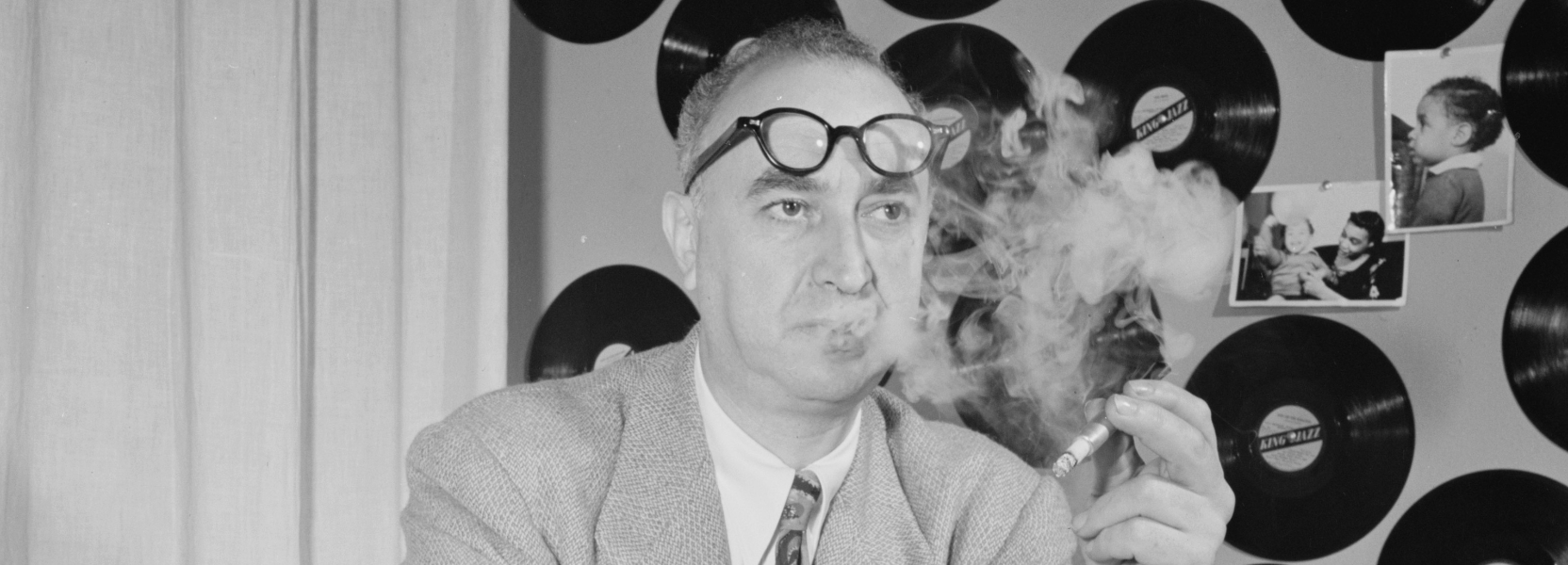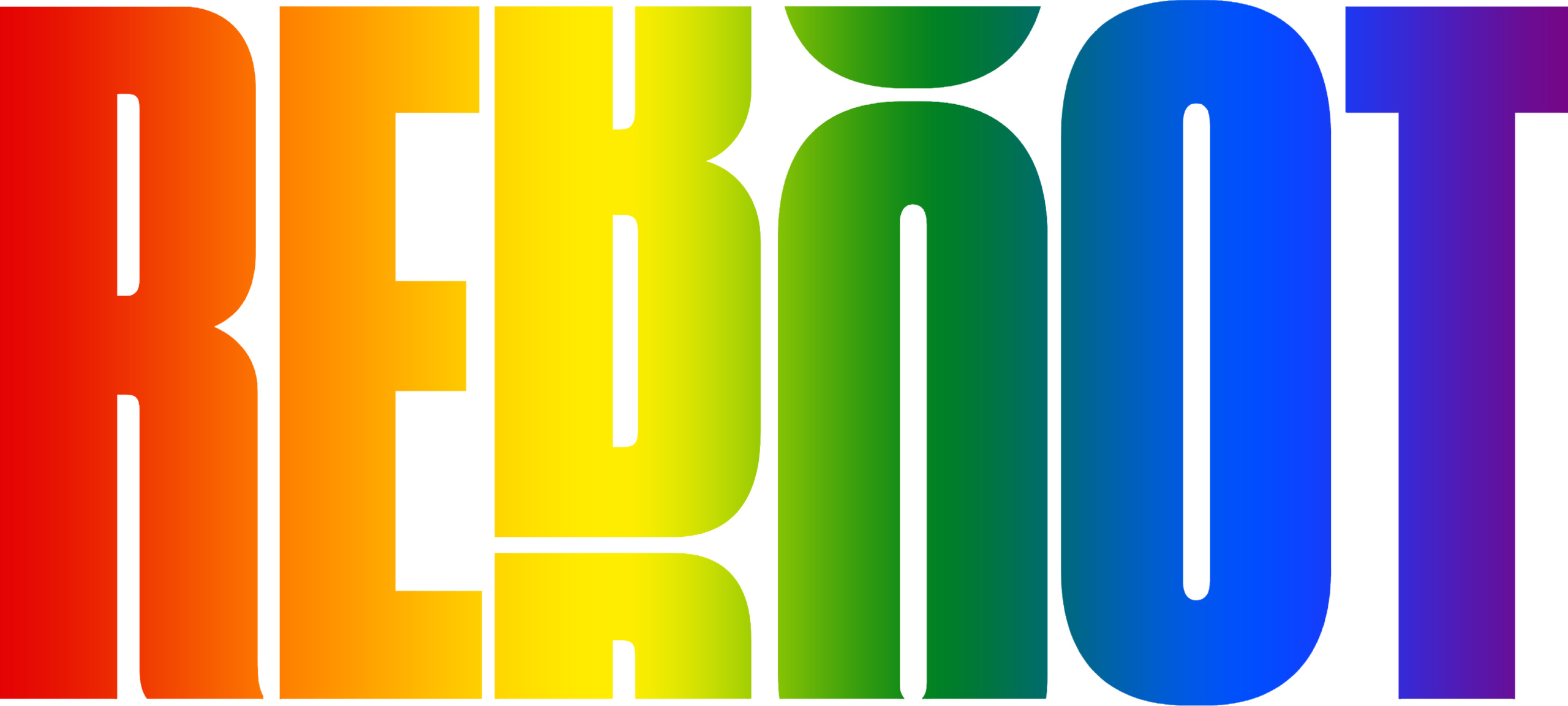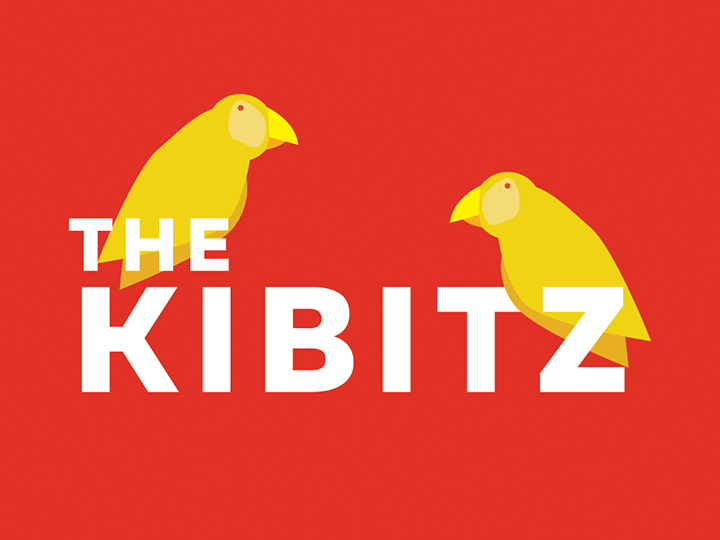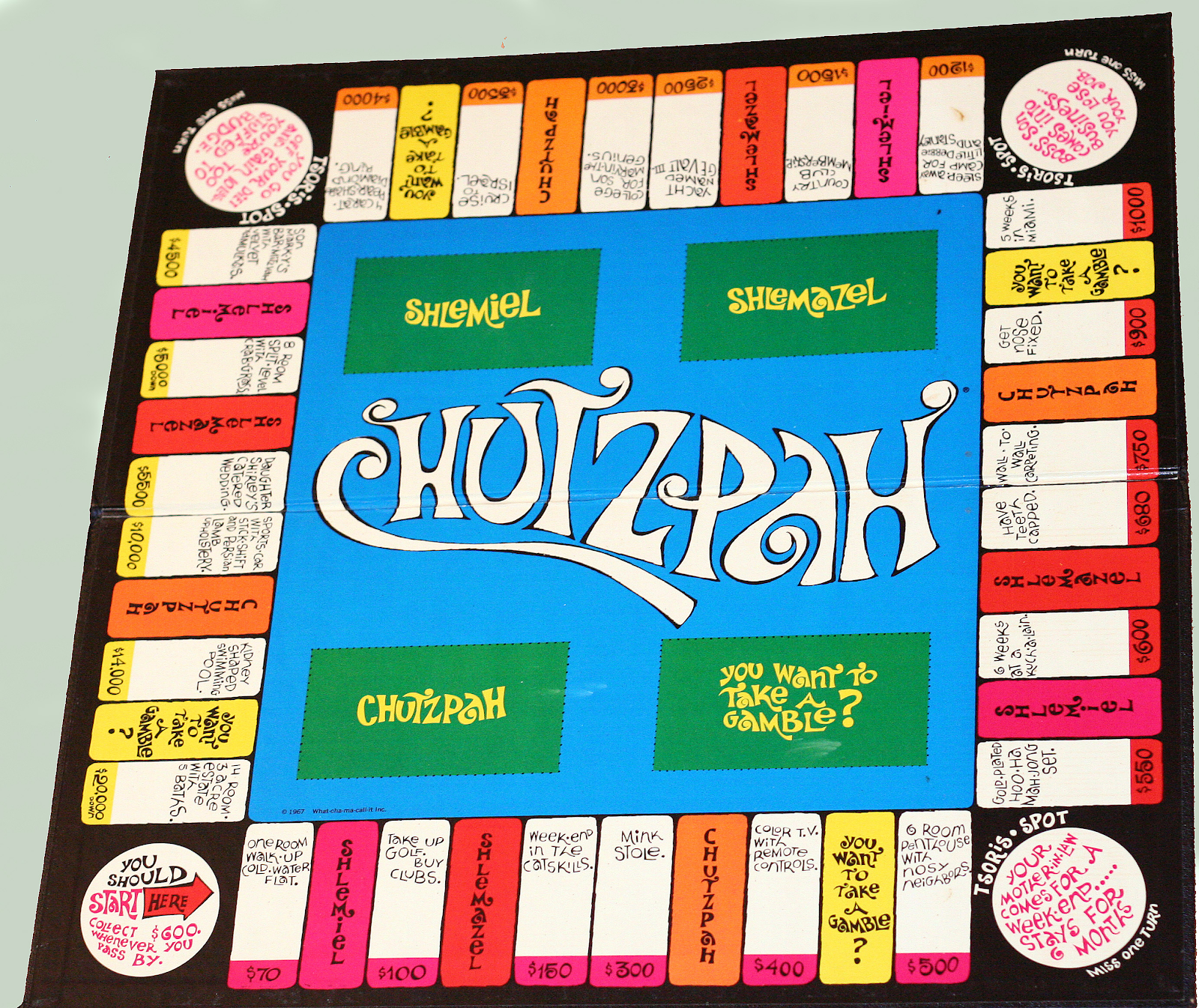The Jewish Roots of Reefer in America

Mezz Mezzrow, 1946
Mentioned in the Bible and discussed in numerous traditional texts, cannabis has long been a part of Jewish life. For millennia, Jews have been buying, selling, and using cannabis for religious and medicinal purposes and as an intoxicant. The opening of YIVO’s latest exhibit, Am Yisrael High: The Story of Jews and Cannabis, will feature a panel discussion May 5 moderated by Reboot Network member Eddy Portnoy. Portnoy will provide a brief overview of the relationship between Jews and cannabis and then moderate a discussion with Ed Rosenthal, Adriana Kertzer, Rabbi/Dr. Yosef Glassman, and Madison Margolin on the many connections of the Jews to cannabis – religious and spiritual, historical, scientific, and more. Thursday May 5, 2022 7:00 p.m. Register here.
Find out more about the exhibit here.
Open May – December 2022
It’s a funny thing about marihuana – when you first begin smoking it you see things in a wonderful soothing, easy-going new light. All of a sudden, the world is stripped of its dirty gray shrouds and becomes one big bellyful of giggles, a spherical laugh, bathed in brilliant, sparkling colors that hit you like a heatwave. Nothing leaves you cold anymore; there’s a humorous tickle and great meaning in the least little thing, the twitch of somebody’s little finger or the click of a beer glass. All your pores open like funnels, your nerve ends stretch their mouths wide, hungry and thirsty for new sights and sounds and sensations; and every sensation, when it comes, is the most exciting one you’ve ever had. You can’t get enough of anything – you want to gobble up the whole goddamned universe just for an appetizer.
– Mezz Mezzrow, Really the Blues, 1946
In Grass Roots, his 1979 history of cannabis in America, the journalist and scholar Albert Goldman (who also famously wrote biographies of Lenny Bruce, John Lennon, and Elvis), wrote that Mezz Mezzrow was the most important figure in the popularization of marijuana in America.
But just who is Mezz Mezzrow? Born Milton Mesirow in Chicago to Yiddish-speaking immigrant parents, Max and Lena in 1899, he was, by his own admission, a terrible kid who wound up in reform school. The one saving grace, however, of the Pontiac Reformatory, was that Mesirow learned to play the saxophone there. After a few stints in jail, he became a jazz musician, playing with the likes of King Oliver, Sidney Bechet, and Louis Armstrong.
In the 1920s and 30s, reefer was becoming a popular commodity among jazz musicians, who not only enjoyed it, but felt that it was a mind-expanding experience and helped their creative juices flow. Mesirow, who changed his name to Mezzrow, had gotten into it in Chicago and had developed a good Mexican connection. Around 1930, he made his way to Harlem to become part of the jazz scene where it was the hottestbut was so poor that he started selling reefer to make ends meet.
Very quickly, he became the most popular man in Harlem. Known variously as The Reefer King, Poppa Mezz, and The Muggles King,his unique pre-rolls were known on the street as “mezzrolls,” and quality reefer was known simply as “mezz.” He had become fast friends with none other than Louis Armstrong, who was also a huge fan of Mezzrow’s weed. And Mezzrow became Armstrong’s main supplier.
Songwriters started to slide Mezzrow references into their songs. Stuff Smith, a jazz violinist, best known for his song, If You’re a Viper, included this lyric:
Dreamed about a reefer five foot long
The mighty mezz but not too strong,
You’ll be high but not for long
If you’re a viper.
The currency of cannabis in the jazz scene and popular song references like this helped increase the popularity of the substance generally. Still mainly underground, Beat poets like Allen Ginsberg got into cannabis and began not only to promote it, but to advocate for its legalization. Ginsberg helped popularize weed for the growing rebellious youth culture of the 1960s, which helped bring cannabis into the mainstream. But it was Mezz Mezzrow, a Jewish kid from Chicago, who was the early lynchpin in the popularization of cannabis as a common feature of American popular culture.
Learn more about the intersection of Jews and cannabis, how it fits into Jewish traditional culture and how certain Jews have played prominent roles in the cannabis industry – in science, botany, medicine, commercial applications, and the legalization movement here.
Eddy Portnoy is a specialist on Jewish popular culture. He currently serves as Academic Advisor for the Max Weinreich Center and Exhibition Curator at the YIVO Institute for Jewish Research. The exhibitions he has created for YIVO have won plaudits from The New York Times, VICE, The Forward, and others. He is the author of Bad Rabbi and Other Strange but True Stories from the Yiddish Press (Stanford University Press 2017).


